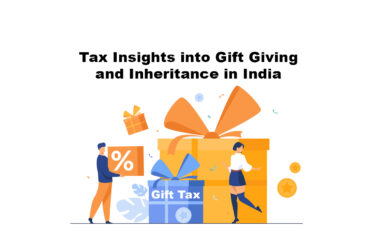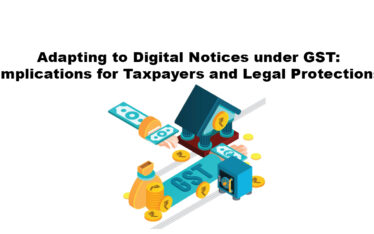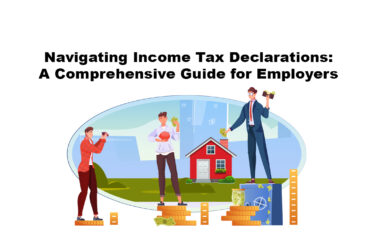A soap opera normally would mean programmes or series which continue over a long period and are broadcasted at regular intervals.
History
Tax Amnesty Schemes in India, series of them, have been offered at regular intervals. In fact, Indians have started to predict with a reasonable level of certainty, about the forthcoming Tax Amnesty Scheme. This is so because time & again, almost every ten years, (as seen from the table below) some or the other kind of amnesty has been offered by successive Governments in power. And almost every time such amnesty has been termed as the “Last Opportunity”!
| Year | Scheme |
| 1951 | Scheme called “The Tyagi Scheme” named after the then Minister Mr Mahavir Tyagi. |
| 1965 | Block Voluntary Disclosure Scheme |
| Sixty-Forty Scheme | |
| 1975 | Voluntary Disclosure Scheme |
| 1985 | Amnesty Scheme – to disclose Wealth |
| 1986 | FERA Amnesty Scheme |
| 1997 | Voluntary Disclosure Scheme |
| 1998 | Kar Vivaad Samaadhan Scheme |
| 2016 | Income Declaration Scheme |
| Direct Tax Dispute Resolution Scheme |
And then the following which is offered in the current FY 2019-20
| Year | Scheme |
| 2019 – 20 | SVLDRS – Sabka Vishwas – (Legacy Dispute Resolution) Scheme, 2019 |
| Vivad se Vishwas – Direct Tax Resolution Scheme |
Apart from the above, some investment offers in securities, listed below, which too are in nature of amnesty schemes, to unearth black money/garner tax collections:
| Year | Scheme |
| 1965 | National Defence Gold Bonds |
| 1978 | Demonetisation of High Value Currency |
| 1981 | Special Bearer Bonds |
| 1986 | Indira Vikas Patra |
| 1991 | National Housing Bank Deposits Scheme |
| 1993 | Gold Bonds Scheme |
All the schemes are or were designed in order to attract people, by offering almost all kinds of lures ranging from highly concessional tax rates, demonetization, settlement of disputes, investments in securities like Bearer Bonds, Gold Bonds, and Vikas Patras.
While offering the schemes, the government has tried to appeal to sentiments like, nation-building, national security, curbing black money, fear of penalties & prosecution and so on.
Success & Failure of the Scheme
Why the Government has to offer these schemes at regular intervals? Why does the unaccounted money start accumulating again & again?
For any amnesty scheme to be successful, there has to be subsequent strict punitive action, from authorities, to book those unscrupulous offenders who do not avail the Amnesties and continue to hoard such wealth and those who continue to amass unaccounted incomes after the Amnesty. This is the most important aspect which has been missing for the last 70 years resulting into failure of the various schemes offered. Time has proved, the missing intent of the authorities, and ultimately such amnesty schemes just became schemes to collect the money to fill the coffers.
Wanchoo Committee after studying the first three schemes had concluded way back in1971 that –
“We consider that a disclosure scheme is an extraordinary measure, meant for abnormal situations such as after a war or at a time of national crisis. Resorting to such a measure during normal times and that too frequently would only shake the confidence of the honest taxpayers in the capacity of the Government to deal with the lawbreakers and would invite contempt for its enforcement machinery. We are convinced that any more disclosure schemes would not only fail to achieve the intended purpose of unearthing black money but would have a deleterious effect on the level of compliance among the taxpaying public and on the morale of the administration. We are, therefore, strongly opposed to the idea of the introduction of any general scheme of disclosure either now or in the future.”
Shankar Acharya Committee in 1985 noted that :
‘VDS does not blunt the underlying cases of black income generation. If anything, by holding out hopes of repetition in the future, such schemes reduce whatever deterrent effect exists in the current provisions for penalty and prosecution. With the incentives for black income generation unaltered (or worse, enhanced), there is little reason to credit VDS with any long-term effectiveness in the fight against black incomes’.
The 1997 Scheme was challenged by All India Federation of Tax Practitioners before Bombay High Court and later before Supreme Court as violative of Articles 14 of the Constitution.
The Supreme Court, immediately after VDIS 97, asked the government to stop offering ‘amnesty schemes’, as such schemes demoralise honest taxpayers and give tax evaders an opportunity to get away by paying a penalty.
The C & AG in its report dated 14th February 2014, castigated the tax department for its woeful administration of prosecution matters. It commented about the sorry state of affairs. There were substantial delays in the launching of prosecution cases ranging from 5 to 48 years.
Offering such series of Amnesty at regular intervals has to be looked into as a fraud on the honest taxpayers. Repeated amnesties create an expectation of future amnesties, and leave a message that while the honest taxpayer pays tax regularly the dishonest pays from VDS to VDS.
Final Word
Such schemes will tend to be a fraud, played on the honest taxpayers, by the tax evaders with the government being party to it, unless & until it imbibes fear of strict subsequent action from authorities to nab the crooks. But what has been seen is the half-hearted and routine approach by the tax department in prosecuting tax offenders without any honest intent.
In fact, the offer of amnesty and subsequent absence of determined intent from the government would result in a situation where even Honest Tax Payers will not want to pay taxes but rather wait, for an amnesty scheme to declare their income/wealth. No country can afford to spread such an undesirable sentiment.
Thus, rather than having a SERIES of AMNESTY at regular intervals, there should be a SERIES OF PUNITIVE ACTION to nab the culprits immediately as follow up after amnesty. This would help establish the confidence of honest taxpayers, in the administration & intent of the government. Or else, such series of Amnesties would be looked at like, a series of Soap Opera being broadcasted at regular intervals.





